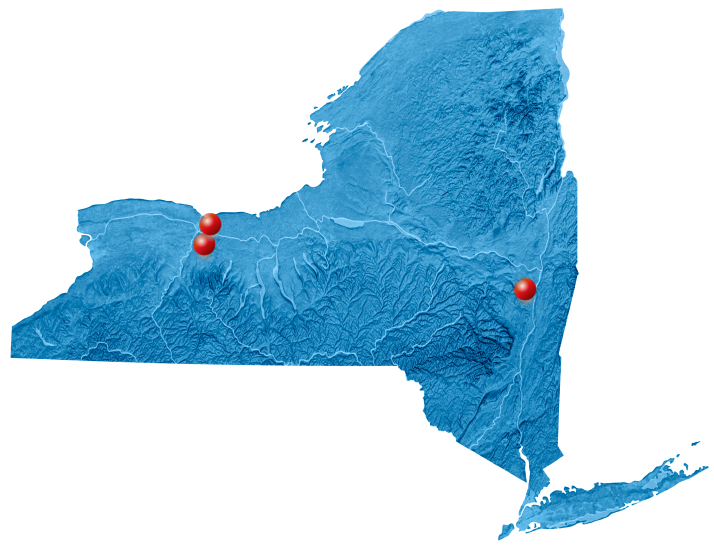SUNY Online Teaching Ambassador 2024: Empire – Thomas Mackey

Dr. Thomas P. Mackey
Empire State University
Dr. Thomas P. Mackey is professor in the Department of Arts and Media in the School of Arts and Humanities at Empire State University. He is the recipient of the Chancellor’s Award for Excellence in Scholarship and Creative Activities, the Dr. Susan H. Turben Chair in Mentoring, and has an honorary appointment as Extraordinary Professor, Research Unit Self-Directed Learning, Faculty of Education, North-West University, South Africa. At SUNY Empire, he is Program Coordinator for the Digital Media Arts Program (BA and BS) and Academic Coordinator for online courses in Arts and Media. Dr. Mackey designs and teaches courses in Digital Storytelling, Ethics of Digital Art and Design, History and Theory of New Media, and Information Design. Prior to his current faculty role, he was Associate Dean and Dean for the online program at SUNY Empire and also served as Vice Provost for Academic Programs. As an early adopter of teaching with the Web, Dr. Mackey’s approach to encouraging students to actively and collaboratively produce original digital content started when he was a doctoral student and then faculty member at The University at Albany and continues through his teaching and research at SUNY Empire.
Dr. Mackey’s research focuses on the development of metaliteracy, a pedagogical model he originated with Prof Trudi E. Jacobson, that prepares individuals as self-directed learners in collaborative information environments. He is interested in the intersections among metaliteracy, self-directed learning, and multimodality, to develop metaliterate learners as reflective producers of information in multiple modes, including online. Their most recent co-authored book for ALA Neal-Schuman titled Metaliteracy in a Connected World: Developing Learners as Producers (2022) is the recipient of the 2024 Divergent Publication Award for Excellence in Literacy in a Digital Age Research. He has published numerous peer-reviewed articles and book chapters about metaliteracy and has been invited to keynote on this topic both nationally and internationally. Dr. Mackey worked with the Metaliteracy Learning Collaborative, supported by SUNY IITG funding, to develop two Massive Open Online Courses (MOOCs) about metaliteracy including Coursera’s Metaliteracy: Empowering Yourself in a Connected World and Empowering Yourself in a Post-Truth World.
Dr. Mackey’s forthcoming book for Rowman & Littlefield titled, Teaching Digital Storytelling: Inspiring Voices through Online Narratives, is co-edited with colleague Dr. Sheila Marie Aird, Associate Professor and European Director of International Programs for Empire State University. They wrote the framing chapter for this volume based on their international collaboration to design and teach their online course Digital Storytelling for SUNY Empire students studying in Prague and the United States. The book features a Foreword written by digital storytelling pioneer and futurist Bryan Alexander and includes chapters co-authored by SUNY colleagues and educators from South Africa.
My advice for online instructors and designers is to always keep it real and to know that anything is possible when teaching online. Communication is key to the success of any online course, as it is to all forms of teaching and learning. In practice, this means that the instructor needs to be present as much as possible and to demonstrate active engagement by moderating the discussions (without being intrusive) and posting weekly announcements with module overviews and assignment updates. It is also important to send class emails with timely and encouraging updates, and to respond to student emails as soon as possible (I promise to do so within 24-hours and find this manageable). In addition, work with your students in a developmental way and encourage them to be successful in the online environment. As part of your communication strategy, reach out to students who seem inactive and provide them with individualized strategies for success.
In terms of course design, always build dynamic and interactive learning activities based on the overall course objectives and the module learning outcomes. In my own teaching, I always advance the metaliteracy model that prepares learners as ethical, informed, and collaborative producers of digital information. I build these themes into the course description and learning objectives. In all of my courses in the Digital Media Arts Program at Empire State University, I promote metaliterate learning by designing individual and collaborative learning activities that support learners as active and productive participants of a shared learning community. My students design and produce individual and team-based digital stories, digital objects, digital images, sound files, and digital presentations. All of this creative activity is especially important in a world of generative artificial intelligence (GenAI) because we need to rely less on discussions and more on social and collaborative learning activities that engage students with the latest technologies.
To learn more about metaliteracy and my approach to teaching online, feel free to explore my Metaliteracy.org blog, Global Digital Stories blog, and faculty web site.
If you have questions or would like to talk about metaliteracy and online learning, feel free to reach out to me at: tom.mackey@sunyempire.edu.



